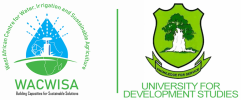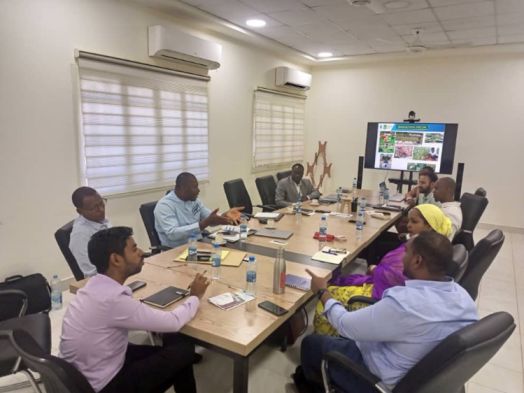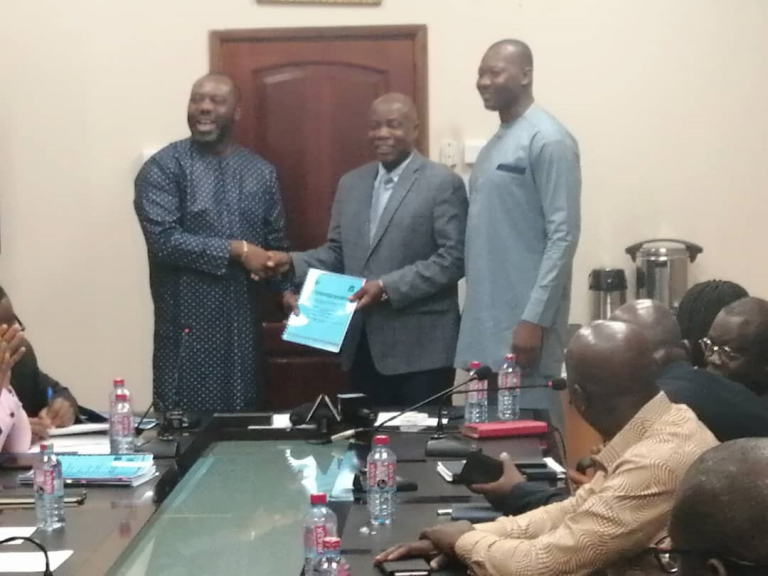Consultancy Opportunity-Diagnostic study and a proposal to improve digital resources for teaching and research within the NET’WATER
Context The result of an institutional collaboration between the Institute for Research for Development (IRD), the French Development Agency (AFD), the World Bank and the Association of African Universities (AUA), the ACE Partners project is registered in the ACE-IMPACT regional funding program, financed by the World Bank and AFD. The ACE Partners project supports the creation of thematic networks between African centers of excellence. It is funded to the tune of € 6M by AFD and € 1M by IRD for 4 years (February 2020 to February 2024). The general objective of the project is to create and ensure the influence and sustainability of the supported networks, and through this its members, in order to position them as leading actors in research of excellence for the development in Africa of the west.
This is how four thematic networks were created:
- Sustainable water management
- Sustainable mining activity
- Digital sciences and technologies
- West African Network for Infectious Diseases ACE (WANIDA)
Presentation of the Sustainable Water Management Network (NET-WATER)
The thematic network Sustainable water management (NET-WATER) aims to promote collaboration between network members, to strengthen their managerial, scientific, educational and technical capacities. It will also accelerate the achievement of indicators related to disbursements within the framework of the African Centers of Excellence for Development program of the World Bank (ACEIMPACT).
The African Centers of Excellence (ACE) constituting the NET-WATER are as follows:
– International Institute of Water and Environmental Engineering (ACE-2iE), Ouagadougou, Burkina Faso:
The 2iE Institute is an African Center of Excellence for training and research of international standard located in Burkina Faso whose main mission is to train competent and innovative engineer- Terms of reference – NET-WATER digital resources study. January 2021 2 entrepreneurs capable of responding to the challenges of the development of the African continent, of offer continuing professional training options to executives and technicians in the private and public sectors, and conduct research / development programs serving the private and public sectors and contribute to the development of scientific knowledge. 2iE’s areas of expertise are Water and Sanitation, Civil Engineering and Hydraulics, Electrical and Energy Engineering, Environment and Sustainable Development, Management and Entrepreneurship.… The Institute 2iE brings together teachers,
-African Center of Excellence for Water and Sanitation (C2EA-INE), Abomey Calavi, Benin:
The African Center of Excellence for Water and Sanitation (C2EA-INE) of the National Water Institute of the University of Abomey-Calavi is a Public Establishment for scientific and technical research, training, engineering and expertise in the fields of Water, Sanitation and Climate change. It is the scientific arm of the state in its field of activity. It aims to play the role of regional leadership in the development of skills and capacity building of public and private administration executives in the various sectors of water and sanitation, water governance, hydromechanics, hydro informatics and climate change. Its dynamism and the interdisciplinarity of its teaching staff have enabled it to forge solid relationships with national and international institutions that support it scientifically, technically and financially. The C2EA-INE therefore aims to provide Africa with a center of competence, expertise and innovation in water and sanitation. This pole intends to take up the challenge of training highly qualified competent personnel able to solve the various operational problems that arise in the various countries of West and Central Africa while taking into account the specific climatic, geological and spaces of each country. It thus responds to its vision, namely “By 2030, C2EA-INE is a center of excellence in terms of training, research, expertise and engineering in the water and water sector. sanitation for sustainable development at national and regional levels ”.
-Regional Water and Environmental Sanitation Center Kumasi (RWESCK), Kumasi, Ghana:
The Kumasi Regional Water and Sanitation Center (RWESCK) seeks to build high quality human resource capacity in Ghana and the sub-region to meet the critical mass of human resources needed to meet the challenges of water and sanitation development highlighted in the Africa Water Vision document for 2025 and post-MDG sustainable development goals. This project aims to promote regional specialization in areas that respond to specific regional development challenges and to strengthen the capacities of universities to provide high quality training and applied research, as well as related outreach activities with industry. and university partners. The center offers initial Masters training and PhD programs on the themes of Water Resources Management, Environment and Waste Management, Drinking Water Supply and Water-related Technologies.
-West African Center for Water, Irrigation and Sustainable Agriculture (WACWISA), Tamale, Ghana:
WACWISA is a semi-autonomous center of excellence specializing in education and research in water resources, irrigation science and engineering, sustainable agriculture and climate change. Its vision is “to be a world-class academic and research center specializing in irrigation, water resources, sustainable agriculture and climate change” and, a mission to “develop the skills and knowledge of young men and women to provide practical and sustainable services, solutions to the challenges of water resources, irrigation, agricultural development and climate change in Africa ”. Terms of reference – NET-WATER digital resources study. January 2021 3 It undertakes the training of high-level personnel at master’s and doctoral level, short career-based courses and conducts cutting-edge research through postdoctoral training in its thematic areas. The Center aims to fill the training gap that exists for the workforce in the field of water resources, irrigation, sustainable agriculture and climate change, particularly in the western sub-region. African. The center draws on already existing relationships and experiences of industry, national, regional and international partners in developing programs tailored to regional needs. Current programs include; Integrated water resources management, irrigation and drainage engineering, soil and water conservation and management, environmental management and sustainability, and sustainable agriculture and food systems. WACWISA also undertakes applied and advanced research that contributes to new and emerging knowledge and technologies to create opportunities for particularly resource-poor people and develop localized and sustainable solutions and technologies for the development and growth of society.
– African Center of Excellence on Climate Change, Biodiversity and Agriculture (ACE-CCBAD), Abidjan, Côte d’Ivoire:
The mission of the ACE-CCBAD on climate change is to provide training and research on issues related to ecosystems, biodiversity, food production (plant, animal and fishery), water, and productive forestry. and sustainable in the context of climate change affecting the region. This includes the training of graduates, the production and enhancement of knowledge related to: (i) (the protection of water resources, the fight against soil erosion, the protection and better use of biodiversity, the adoption of resistance crops projects, protection of forest production through, for example, bioindicators such as pollinators, earthworms and coprophagous insects. The African Center of Excellence on Climate Change, Biodiversity and Sustainable Agriculture of the University Félix Houphouët-Boigny (UFHB) mainly aims to train master and postgraduate students. It focuses on biodiversity, and is part of a pre-existing regional network of 10 institutions focused on climate change (WASCAL). Since 2018, ACE -CCBAD has been one of the host institutions of PASET (Partnership for the Development of Competencies in Applied Sciences, Engineering and Technologies) for the training of doctoral students in the field of food safety.
Main objective of the study:
The Covid-19 pandemic has exposed the capacities of universities and higher education establishments to continue their teaching and research mission in a context of social distancing. This situation revealed the inadequacies of NET-WATER members in terms of digital and technological resources to ensure the continuity of educational and scientific activities. To overcome this problem, NET-WATER has made the digital issue a priority in the roadmap for the implementation of the ACE Partners project. Thus, this call for consultation aims to carry out a diagnostic study of the digital capacities of NET-WATER members to ensure quality training and research at a distance, and propose a plan to strengthen these resources while promoting pooling within NET-WATER.
Specific Objectives
The specific objectives of the mission are defined as follows:
- Identify the problems encountered by the ACEs of NET-WATER during the Covid-19 pandemic to ensure the continuity of teaching and research activities; Terms of reference – NET-WATER digital resources study. January 2021 4
- Carry out a diagnosis of IT resources and equipment, digital platforms and connectivity available to each African Center of Excellence for teaching, research and remote work;
- Identify the strengths and weaknesses of teacher-researchers and support staff dedicated to distance learning and research;
- Identify the capacity building needs of teacher-researchers and support staff in the field of digital education;
- Identify good practices related to the use of digital sciences and technologies in research and higher education in ACE;
- Identify the courses/training offered in distance learning by the ACE and the ones that they plan to offer;
- Map the key players and partners involved in the field of digital education and science; Develop a digital strengthening and development plan in each of the NET-WATER ACEs including the strategy, action plans, budgets, sources of funding and possibilities for inter-ACE pooling.
Study methodology
To achieve the objectives mentioned above, the consultant must make a Technical Offer in which a clear working methodology and the tools used will be presented. The methodology should take into account the following elements without being limited to it:
- Field surveys with ACEs and Universities hosting these ACEs. These surveys should concern those in charge of ACE, departments and laboratories, students and doctoral students, support staff, faculty and scientists, etc.
- Exchanges with partners and other resource persons of the ACE.
- Exchanges with key digital players in the countries concerned. Resource persons for the implementation of the ACE project at IRD and AFD level may be called upon to contribute.
Consultant profile
The consultant must meet the following minimum qualifications: – be specialized in the field of digital education – have at least five (5) years of experience in assessing the capacities of institutions, projects and programs – have a good knowledge of the French and English higher education environment – be perfectly bilingual (French / English) – be able to travel in the sub-region (Burkina Faso, Benin, Ivory Coast and Ghana).
Deadlines Proposals can be submitted until February 28, 2021, after which date no submission will be valid.
Terms of reference – NET-WATER digital resources study. January 2021 5 The consultant should make a proposal for a timetable for the implementation of this study. The maximum period for all activities is set at three (3) months from the official signing of the consultation contract. Content of the offer to be made Proposals should include the following:
- Description of the entity;
- Past and similar experiences;
- Methodology ;
- Personnel and qualifications (include CVs in annex);
- Detailed budget; • Implementation schedule;
- List of deliverables;
Annexes. Contact Please send offers and any questions to the e-mail address: brocard.jeremy@ird.fr , faissal.ouedraogo@ird.fr




